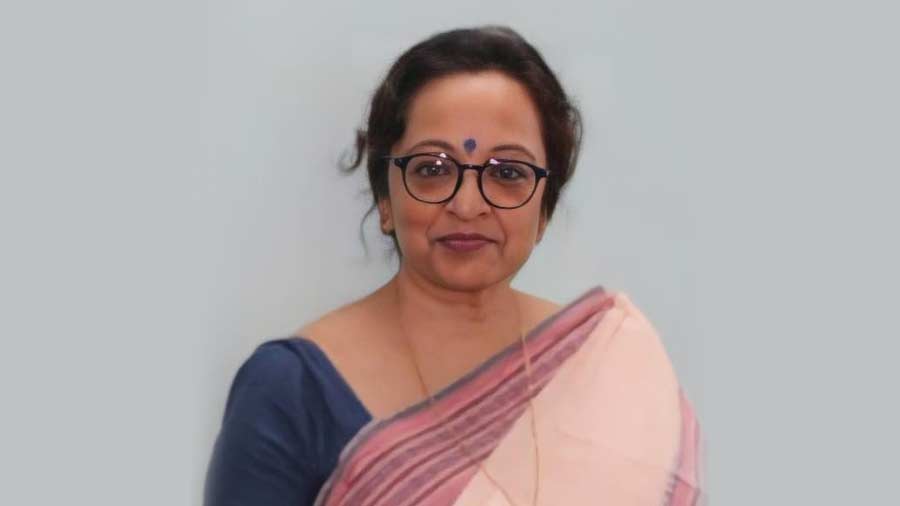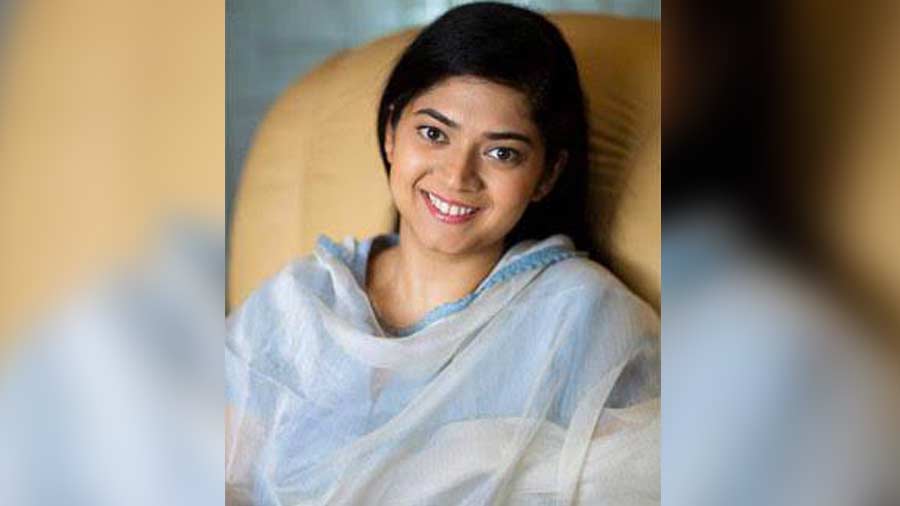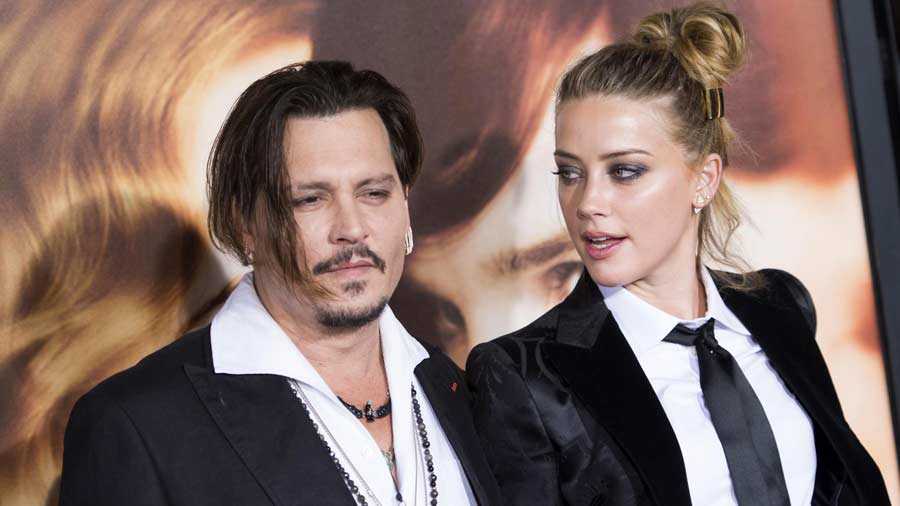The news cycle this past month has been dominated by viral moments from the heavily publicised Johnny Depp-Amber Heard trial. From vaping witnesses to muffin-related testimonies and bumbling attorneys — it’s been quite a kerfuffle.
But the trial has brought to the forefront uncomfortable questions about mutually toxic relationships. What happens when both partners are to be blamed for one disaster of a marriage?
Depp is suing his ex-wife Heard for $50 million over defamation over an essay she wrote for The Washington Post in 2018, where she alleged she was the victim of domestic violence. Depp has also presented several pieces of evidence that prove he had also been on the receiving end of physical and emotional violence.
“I'm scared to death we are a f---ing crime scene right now," Depp is heard saying in one of the recordings, which was presented in court.
‘Reactive abuse’
On the third day of the Depp v Heard trial, psychologist Laurel Anderson referred to Depp and Heard’s relationship as ‘mutual abuse.’ This sparked a debate among experts on what ‘reactive abuse’ really entails and what it says about power dynamics in a relationship.
“There have been many cases where I have had to prescribe medications to both the parties because each of them has their own emotional or mental baggage,” says psychiatrist Rima Mukherji, who established Kolkata mental wellness clinic Crystal Minds, 35 years ago.
“I have seen people who have remarried and have come back to me with the same issues that they used to have with their last spouse. This indicates that they need to work on themselves and haven’t been able to resolve their old issues. In these cases, couple’s therapy is quite futile because their issues have not been dealt with, so their relationship problems will persist no matter who they are with,” she tells us.
Abuse, of course, comes in many forms. Besides physical violence, both Heard and Depp have presented evidence of emotionally abusive moments and an ‘endless parade of insults,’ that they’ve had to endure from each other. Depp has also alleged that Heard denied him withdrawal medication as he tried to detox from opioids.
“Mutual toxicity is quite key here. It’s important to identify the problems that can commonly occur between couples and unhealthy patterns that weigh heavy on relationships,” says psychotherapist Mansi Poddar, the founder of Mansitherapy.
The deal-breaker
Both Poddar and Mukherji agree that it’s difficult for couples to pinpoint red flags at the beginning of their relationship. Mukherji reveals that a sheer unwillingness to work through the issues is a tell-tale sign of incompatibility.

An unwillingness to work through the issues is a tell-tale sign of incompatibility, says psychiatrist Rima Mukherji
“In most cases, one partner brings the other to therapy, the other person may be reluctant because they don’t think there’s anything wrong with them. They may not be willing to participate in the process and that itself can be a tell-tale sign. We are all imperfect at the end of the day, but it’s important to make your partner feel comfortable with you,” says Mukherji.
Setting up boundaries is also a crucial aspect of modern-day relationships, the expert feels. “Sharing passwords or email ids, checking your spouse’s phone constantly or asking them to share a GPS, are signs that no healthy boundaries have been established in the relationship. It’s worth taking a look at why this is happening. It usually stems from insecurity and could lead to bigger problems in the future. Similarly, if one partner is too needy and needs their significant other to pick up the phone at all times or needs to hear certain things from them, it’s also something that needs to be addressed,” she adds.
Giving in to a partner’s insecurities can also cause serious harm to a relationship. The psychiatrist points out that when one of the partners becomes an enabler, the relationship can become co-dependent and unhealthy. “It becomes toxic if someone is very insecure and the other partner is giving in to them, just to avoid a confrontation or a breakdown,” Mukherji says.
Poddar, who feels that each relationship is shaped by individual experiences and past traumas, insists that it is possible to be aware of potential problems in the first year of the relationship, if one is paying close attention.

Psychiatrist Mansi Poddar says each relationship is shaped by individual experiences and past traumas
“Of course, no two relationships are alike and there are no set red flags. What we call ‘red flags’ are defined by our traumas. I lean towards using the term ‘difficulties’ or ‘points of contention.’ The first few years are tricky for any couple because both partners are trying to settle in and adjust. But it is possible to identify how we feel around our partners. Is there too much anxiety or fear? Do all conversations end in fights? Is there a lot of ‘venting’ to friends and no real communication between the couple? If so, there is a problem,” Poddar points out.
Coming to the brass tacks…
At the beginning of a relationship, couples may be too swayed by emotions and are more prone to ignoring certain crucial signs of incompatibility. Mukherji, who works with both married and unmarried couples, feels that couple’s therapy can help people get a better look at their partner’s emotional width.
“Dealing with couple’s therapy and going through it needs a level of emotional intelligence and resilience. Most people who come along are not capable or willing to do the work that’s needed. But at the beginning of the relationship, couples don’t pick up on each other’s flaws that easily. It’s a whirlwind, you’re being love-bombed, you’re busy making plans for the future. Within a month or two of courtship, people are thinking about marriage or setting dates. And yet, they don’t know if their partners can take accountability for their actions or have the ability to say sorry. This snowballs into some major issues later,” Mukherji reveals.
During a 31-minute recording that was played during the Heard vs Depp trial, Johnny is heard lamenting how he never really knew his wife. “I loved you for so many f**king years but you know what? You didn’t exist. You don’t exist. You're not there. You’re not there. You are a made-up thing in my head. And I can’t believe you are doing this to me,” Depp cried.
Since therapy is more readily available now, Poddar suggests opting for expert help earlier in the relationship. “I recommend people see a trained couples counsellor earlier in the relationship rather than later. I see a lot of younger couples (under 45) who reach out to me and adult children reaching out to me for their parents because their marriage has made the environment at their home really unhealthy,” the expert tells us.
But what happens when one of them opts out of therapy? Does the other one need to drop out too? “We try to work with the willing partner, helping them be more aware and offering them the insight and confidence they need, so they are better at identifying unhealthy patterns. It’s not couple’s therapy but it’s certainly helpful,” Mukherji says.
Reach out to Crystal Minds at 26, Mahanirban Rd, Dover Terrace, Ballygunge (Phone: 033 3551 6131) and find details about Mansitherapy here.
